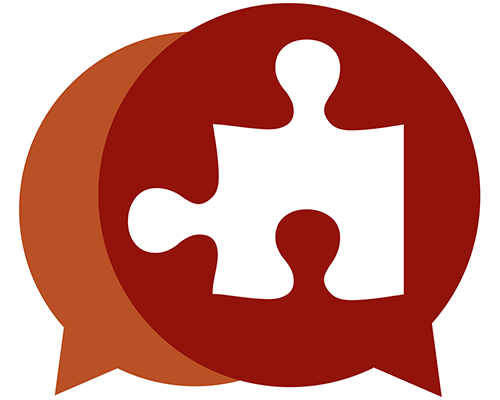Evaluating Sources
Thinking Critically About Sources

Evaluating resources often means piecing together clues
This section teaches you how to identify relevant and credible sources that have most likely turned up when searching the Web and on your results pages of the library catalog and specialized databases. Remember you always want to look for relevant, credible sources that will meet the information needs of your research project.
In order to evaluate a source, you have to read and review the information keeping in mind two very important questions:
- Is this source relevant to my research question?
- Is this a credible source– a source my audience and I should be able to believe
Note: As you read an academic paper you will need to determine relevance before credibility because no matter how credible a source is if it’s not relevant to your research question it’s useless to you for this project. Reading research-centric papers can be challenging. Check out the tips in the video below.
UBC iSchool. (2013). How to read an academic paper. [Video]. https://youtu.be/SKxm2HF_-k0
Happily, you’ll also get faster the more you do it.
Making Inferences: Good Enough for Your Purpose?
Sources should always be evaluated relative to your purpose-why you’re looking for information. But because there often aren’t clear-cut answers when you evaluate sources, most of the time it is inferences, educated guesses from available clues, that you have to make about whether to use information from particular sources.
Your information needs will dictate:
- What kind of information will help?
- How serious you consider the consequences of making a mistake by using information that turns out to be inaccurate. When the consequences aren’t very serious, it’s easier to decide if a source and its information are good enough for your purpose. Of course, there’s a lot to be said for always having accurate information, regardless.
- How hard you’re willing to work to get the credible, timely information that suits your purpose. (What you’re learning here will make it easier.)
Thus, your standards for relevance and credibility may vary, depending on whether you need, say:
- Information about a personal health problem.
- An image you can use on a poster.
- Evidence to win a bet with a rival in the dorm.
- Dates and times a movie is showing locally.
- A game to have fun with.
- Evidence for your argument in a term paper.
For your research assignments or a health problem, the consequences may be great if you use information that is not relevant or not credible.
Check Your Knowledge: Evaluating Sources
Educated guesses
